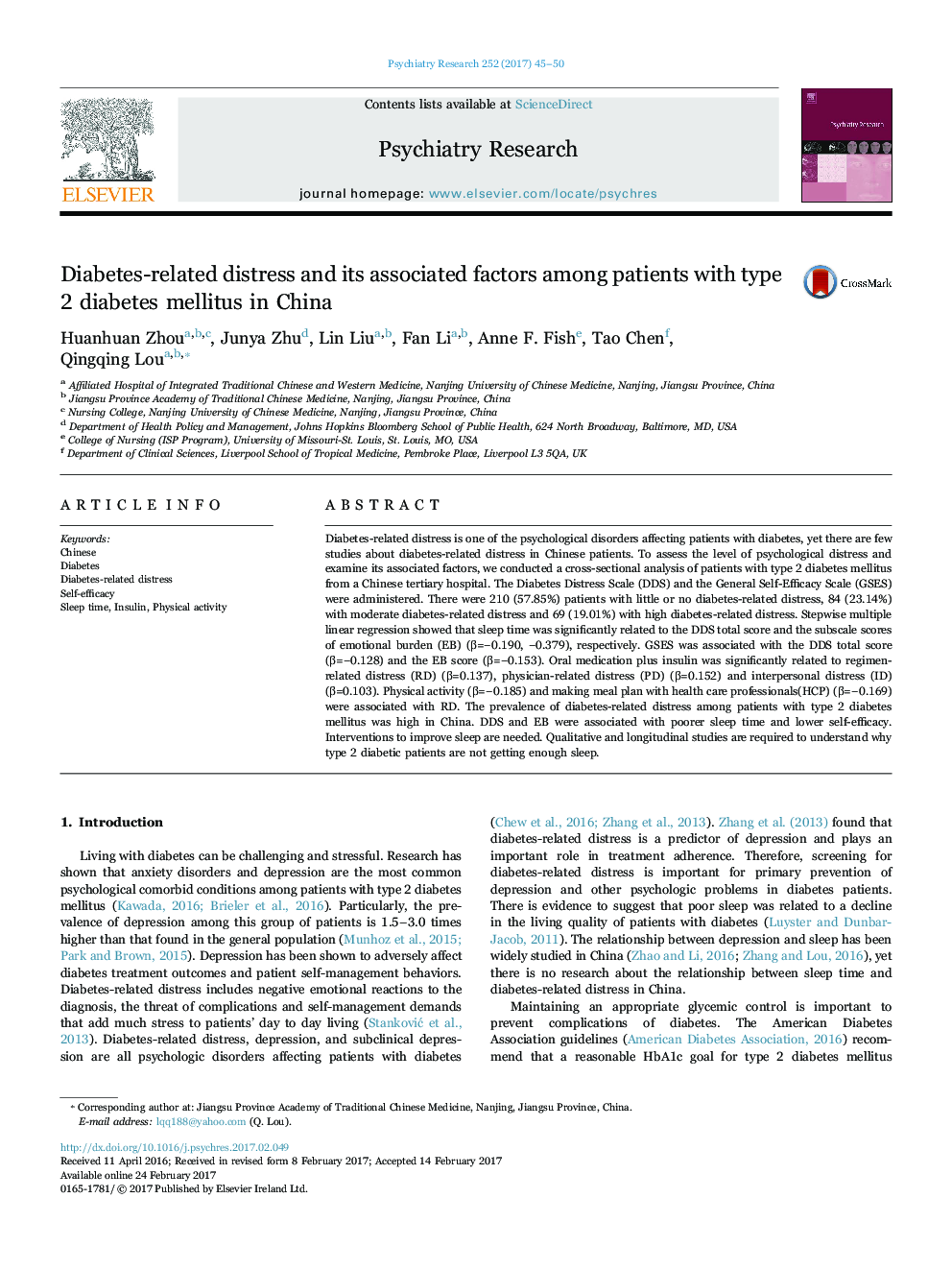| Article ID | Journal | Published Year | Pages | File Type |
|---|---|---|---|---|
| 4933397 | Psychiatry Research | 2017 | 6 Pages |
â¢People with Diabetes-related distress(DD) need to improve the psychological level.â¢Finding associated factors can enhance the efficiency of education and support.â¢The study indicates sleep time and self-efficacy were the related factors of DD.â¢Exercise, medication and meal plan were related to regimen-related distress.â¢We should focus on DD and its related factors when providing clinical care.
Diabetes-related distress is one of the psychological disorders affecting patients with diabetes, yet there are few studies about diabetes-related distress in Chinese patients. To assess the level of psychological distress and examine its associated factors, we conducted a cross-sectional analysis of patients with type 2 diabetes mellitus from a Chinese tertiary hospital. The Diabetes Distress Scale (DDS) and the General Self-Efficacy Scale (GSES) were administered. There were 210 (57.85%) patients with little or no diabetes-related distress, 84 (23.14%) with moderate diabetes-related distress and 69 (19.01%) with high diabetes-related distress. Stepwise multiple linear regression showed that sleep time was significantly related to the DDS total score and the subscale scores of emotional burden (EB) (β=â0.190, â0.379), respectively. GSES was associated with the DDS total score (β=â0.128) and the EB score (β=â0.153). Oral medication plus insulin was significantly related to regimen-related distress (RD) (β=0.137), physician-related distress (PD) (β=0.152) and interpersonal distress (ID) (β=0.103). Physical activity (β=â0.185) and making meal plan with health care professionals(HCP) (β=â0.169) were associated with RD. The prevalence of diabetes-related distress among patients with type 2 diabetes mellitus was high in China. DDS and EB were associated with poorer sleep time and lower self-efficacy. Interventions to improve sleep are needed. Qualitative and longitudinal studies are required to understand why type 2 diabetic patients are not getting enough sleep.
